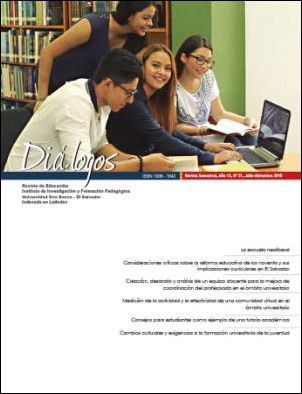Critical issues about the educational reform of the ninety and their curriculum implications in El Salvador
DOI:
https://doi.org/10.5377/dialogos.v21i1.14707Keywords:
Reform, education, curriculum, neoliberal, ninety, El SalvadorAbstract
In this article, the author critically analyzes the educational reform carried out in El Salvador during the eighty and ninety decades. He contextualizes how the Latin- American region developed during these two decades a series of educational reforms supported in the paradigm of the neoliberal globalization. He argues as the main thesis, that in the case of El Salvador, such educational reform was based on the neoliberal economic model, from which it took its distinctive features: the economic concept and values, the practical and instrumental application of its methods in the teaching-learning process and its educational purposes by forming people for consumerism and labor-oriented skills. He concludes that the educational reform brought the educational misfortune, betrayed the critical and humanistic ideals, but instead, fulfilled the purpose of the business groups emerging and their political representatives from the post war era to set the educational system in terms of a maquila-and-remittance-oriented economic model.
Downloads
270

